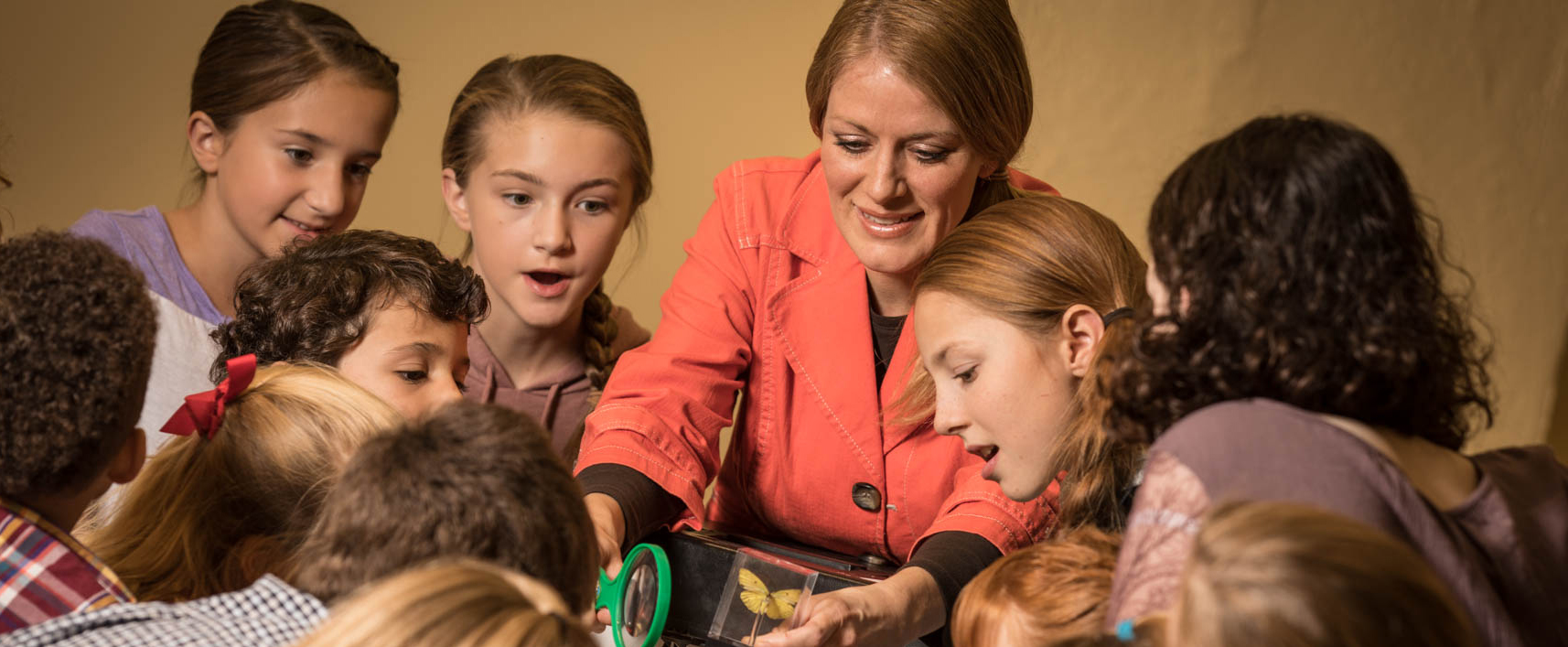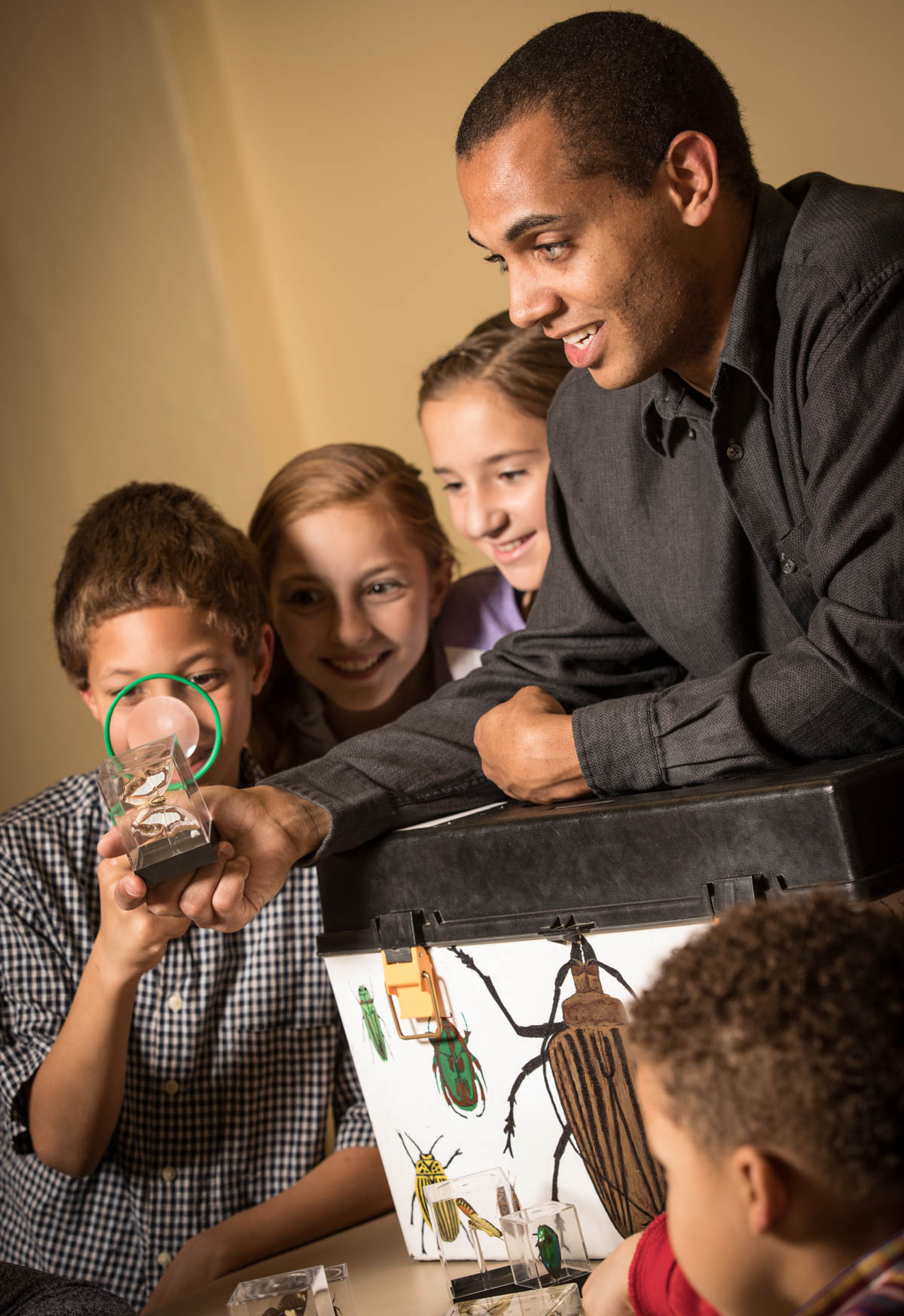Learning Collection

Bring the museum to your classroom with Science Kits from Carnegie Museum
Use Carnegie Museum of Natural History’s collections to bring your lesson plan to life! Our Learning Collection loan program inspires hands-on, interactive classroom learning by putting objects and specimens from our world-class collections into students’ hands. Students can learn about volcanoes by examining samples of pumice and basalt or make observations about camouflage by comparing bird egg color patterns. Teachers and professors can borrow more than 150 different science kits that contain real specimens, fossils, ancient artifacts, and more. Science kits can be worked into lesson plans about minerals, geography, geology, zoology, and ancient and native American cultures for a wide array of grade levels.Available Science Kits
Dinosaurs
Three toolboxes contain a dinosaur skull cast, scale models, touchable fossils, and lessons. Borrowing these materials is a great way to prepare for a class visit to Dinosaurs in Their Time.
Rocks, Minerals, Fossils
Rock types, mineral properties, the process of fossilization, whether students are exploring these topics for the first time or reviewing information learned earlier, hand-sized samples are valuable teaching aids.
Skulls and Skeletons
Skulls and skeletons are packed with information about the creature they once supported. Development of our ability to read these bone messages begins with the close examination of skulls and skeletons.
Birds, Mammals, and other wildlife
Life-like is a proper description for these three-dimensional representations of birds, mammals, reptiles, amphibians, and fish. Their potential to promote learning is limitless. Check the full list of materials for tips and suggestions.
Biomes and Threatened Species
For three topics, Deserts, Tropical Forests, and Arctic Tundra, separate but related materials are borrowed as a set. A similar unit includes seven examples of Pennsylvania’s threatened wildlife species.
Insects and other invertebrates
Arthropod is the broad term for this category, but preserved insects outnumber all other items. Most materials are Riker Mounts – preserved butterflies, beetles, or other insects displayed on polyester batting under a glass cover.
Ancient and Modern Cultures
Use artifacts to study living cultures presented in Alcoa Foundation Hall of American Indians and the mysterious people depicted in Walton Hall of Ancient Egypt. Artifact sets representing some African Peoples are also available.
Ocean Life
Sea shells, coral, sea stars, and sponge now rest in sturdy plastic toolboxes rather than the saltwater and sand. Boxes devoted to whales, sea turtles, and sharks provide additional items and information.
Plants
Large collections of pressed and dried plants are known as herbariums. Students can become familiar with such natural history resources by examining authentic herbarium sheets for common trees, spring wildflowers, and poisonous plants.
How it works
Educators can opt for one-time loans or register for an annual loan subscription that gives teachers access to the entire collection of natural science kits and artifacts.
Teachers or parent volunteers can pick up and return kits near the portal entrance of the museum between 7 a.m. and 6 p.m. daily. All kits must be reserved one week in advance.
Scholarships to cover registration fees may be available. Eligibility for these funds is determined by financial need. Contact Outreach@CarnegieMNH.org for information and to apply.
Cost
One time loan - $50
No limit is set on the number of items that may be requested. One-time loans average eight items.
Annual membership - $150-200
For facilities with enrollment of less than 400, the annual registration fee is $150. For facilities with enrollment over 400, the annual registration fee is $200. Registration grants unlimited borrowing privileges to all faculty members for a full 12-month period.
To register call 412.622.3288 or email Outreach@CarnegieMNH.org.

